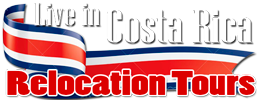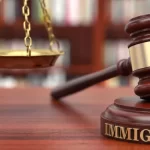15+ Smart Steps to Renting a Home in Costa Rica
I always do a fly-over of the topic of renting in Costa Rica in my presentation at the ARCR Seminars, but because I know quite a few El Residente readers are renting, as will many future ARCR members, I decided to write this more in-depth article.
Now you probably say “15+ Smart Steps”! That’s a lot to take in before renting a home! Why so many? You’d think that renting a home in Costa Rica is easy, and yes, it is, IF you pay attention and IF you speak Spanish. But if you’re not so confident because the culture is different and your translation skills are somewhat lacking, you might find the process more complicated than you anticipate. Therefore, this might be useful information.
First, before doing anything else, you should learn enough about the country to be sure you know where you want to live – High/low? Hot/cool? Ocean front/inland?”, Small/large community? Jungle/urbane? Etc. So the very first step, and the most logical one, is to rent someplace and “try it out.” Once you’ve found the locale/city/town/area that’s to your liking, put some thought into what features, amenities, services, and environment you’re looking for.
Sure, looking at homes online is easy and fun, but if you have never been “there,” you won’t know what you are seeing. I receive hundreds of emails from future renters saying, “When I get to Costa Rica, I want to rent a home.” Usually, it takes five or six emails back and forth before I find out what their requirements and budget are.
Most of the time, it’s like pulling teeth. So, I decided to write this guide for renting a home the easy way. Let’s start with something NOT to do:
- DON’T START TOO EARLY
Don’t start looking to rent a home long before you even get here. For sure, the home you find now and really love won’t be available when you’re actually ready to rent. But there will be others, don’t worry.
- WHAT’S YOUR BUDGET? AND WHAT IS INCLUDED IN THE BUDGET?
First, figure out your budget. Consider that besides the basic rent, the costs of utilities must be considered. Knowing what your total monthly expenses will be can have a major impact on where you might live. Sometimes the rent includes utilities and even cable TV and internet. (A renter can’t have power, phone (landline), and water in their name unless they are a resident or citizen; therefore, these accounts will be in the landlord’s name.) Sometimes a gardener is included, and even the pool maintenance, so the landlord knows the property is maintained well. In some condominiums, the water is included in the HOA fees. Ask your landlord which of those the renter is responsible for and when they need to be paid, so you won’t be cut off. If they’re not included in the rent, you can pay them at any bank or many large grocery stores with cash. An internet connection and cable TV are personal and almost always in the name of the tenant. There are several providers and packages with various speeds and numbersof channels available. Ask your landlord which provider they recommend.
- LONG OR SHORT TERM?
Before renting a home, decide if you need a short-term (by the month) or long-term (1-year minimum) lease. The law about leasing indicates that the standard term of a lease is three years (you may see leases that are for a minimum of one year) with the option to renew if both parties agree. Most agencies don’t get involved with short-term rentals since Airbnb has come along, so if you only want to commit to obligating yourself to a month or two at a time, you will most likely be on your own.
- DOLLARS OR COLONES?
You need to determine up-front if you will pay the rent in Costa Rican Colones or U.S. dollars; it might be important, depending on how you receive your income. If you pay in colones, the law allows the landlord to raise the rent 15% a year if the inflation is equal or more. Unless you plan to ‘go native’, count on paying your rent in U.S. dollars because then the law prohibits rent increases during a three-year lease period. Also, keep in mind that if your income is in dollars and your rent is paid in colones, the fluctuating exchange rate can mean your rent is a different dollar amount each month.
- HOUSE, APARTMENT, OR CONDO?
Before considering renting a home, decide what you want: do you want to live in a single-family house in the general economy, an apartment or condo, or a home in a gated community? If you are renting in a gated community just for a few months or vacation, then ask, before renting, for a copy of the bylaws so you know the rules of behavior. Condo living is not for everyone.
- FURNISHED OR UNFURNISHED?
Will you need to rent furnished or unfurnished? Learn more about renting furnished or unfurnished, what’s included and what’s not, at Furnished or unfurnished. Remember, most unfurnished rentals do not include appliances. That’s because good quality basic appliances are very expensive here. (Most local tenants have their own appliances anyway.)
- SHOULD YOU SHIP YOUR FURNITURE AND APPLIANCES?
Before even looking at places to live, you need to decide if you will be shipping your furniture and/or appliances or just bringing personal belongings. Talk to an experienced mover like Charles Zeller of “Ship to Costa Rica” and stick to his recommendations. Usually, it takes about three months before your container arrives (and gets through customs). Also, before you decide to bring your furniture and/or appliances, educate yourself on import taxes. An option is to buy what you need here. Whatever your decision may be, it has a major impact on what kind of housing you will want to rent and for how long.
- HOW WILL YOU PAY YOUR RENT AND OTHER MONTHLY EXPENSES?
Paying rent, as well as buying food and other necessities,requires access to finances. It is very important to know thatit is difficult to open a bank account in Costa Rica if you’re not a resident. It can take a year to be granted residency, and until you become a resident you will ONLY have access to a simplified bank account that allows deposits of up to USD $1,000/per person/per month. Talk to your real estate agent and ask if he or she knows about any other solutions. Be aware that any Costa Rican bank will require you to supply information about the origin of the funds being deposited.
Landlords will NOT accept credit or debit cards for lease payments. Utility companies won’t either. Writing a check probably won’t work as Costa Rican banks won’t cash a check from another country. A foreign check deposited into a Costa Rican bank account often takes 2-3 weeks to clear and for the funds to become available.
Renting requires future planning, and you want to have the ability to make the monthly payments before committing to renting a home. Two short-term solutions are: A) Bring enough cash for your first two month’s rent, a security deposit, and two months of utility payments, plus other miscellaneous expenses. But be aware, that carrying more than USD $10,000 in cash is subject to it being confiscated! or, B) Plan on making cash withdrawals from local ATMs. If that is your decision, find out if your bank charges you for cash withdrawals from Costa Rican ATMs. (Also, be aware that many ATMs allow withdrawals of no more than USD $300/day; some allow more, and others allow less.) Also, find out what your bank’s daily max is and what the cheapest way to make a cash withdrawal is.
A longer-term solution for obtaining the cash you will need is to have your bank at home make wire transfers to your bank account in Costa Rica. Or bring a checkbook and write yourself a check now and then and deposit that into your local account. This can take as long as three weeks to clear, but it saves wire costs.
- HOME SECURITY
Don’t let window bars, high walls, gates, and fences scare you away. Unfortunately, home security is necessary in Costa Rica as there is petty theft (for lack of welfare) in some areas. If the location you are looking at has no window bars, walls, gates, razor wire, or large fences, don’t rent it; without them, security will probably be a problem.
- PUBLIC TRANSPORTATION
If you are not planning on buying a car, then it can be important to rent a home where there is a good bus service close by. Public transportation in Costa Rica is cheap and good. Learn as much as you can about bus schedules because San José functions as a hub. All communities have plentiful taxi services, and in the Central Valley and some other communities, there has been a sharp expansion of Uber-type ride-sharing services.
- MEDICAL CARE.
If you need specialized medical care, before you decide to rent a home, look at the home’s proximity to hospitals, clinics, and pharmacies. Being isolated from city noise can be nice, but quick and easy access to medical facilities can be more important. It is a good idea to consider all the resources and facilities of the neighborhood. Access to grocery shopping, the farmer’s market, and anything else that is a requirement for you to live comfortably and happily can be very important. It’s a good idea to check the area around the home you want to rent at night. Walk the neighborhood and see if you feel safe and comfortable.
- THE LEGAL RENTAL PROCESS
Before you sign any lease agreement, have an attorney check it over. Use a real estate lawyer, if possible. If you don’t want to pay a lawyer, don’t, but don’t complain when you have problems with the landlord or landlady. Realtors usually have a standard agreement that has been checked over and over.
As part of the rental process, insist on an inventory list andcheck all items. If something is missing or is broken, ask for a replacement. Make a note on the inventory and have the landlord sign it before you sign the lease agreement.
The same goes for damages. Check for any damage before signing the lease. Check paint, drains, lights, and everything that possibly doesn’t function correctly.
Most lease agreements oblige a security deposit of one month’s rent. Everything that is not in perfect condition or missing will be deducted from the security deposit when you leave. Some landlords will not return the deposit, even if you’ve left the place in perfect condition. Protect yourself by not paying the last month after you’ve given (or been given) notice.
Sub-letting without the approval of the landlord is illegal in Costa Rica. This is stipulated in the General Law of Urban and Suburban Leases, No. 7527. Make sure you rent from the legal owner.
- PETS
Do you have a pet? Tell your agent or the landlord before renting a home. Ask for the rules about having pets when it’s a condominium and check for pet restrictions or if there is a pet security deposit.
- OPERATING A BUSINESS
When renting a home, do not start a business there if you rented it as a residential property. There are restrictions for running a business from home, especially in condominiums. Exceptions can be made if the landlord/landlady agrees, and it’s stipulated in the lease agreement. (If you run an online business, you should not have to worry.)
- RELATIONSHIPS
Try to maintain good, clear communication and relationship with your landlord or landlady. And try to be tolerant of their ‘idiosyncrasies’; remember, you’re a guest in this country and the culture and its rules may be different than you are used to.
SOME FINAL TIPS
When choosing an agent or agency, do your due diligence and look for one that has good recommendations. In this country, anyone, with or without a license, experience, or special qualifications, can rent or sell houses. Try to decide on one single agent and do not go all over the place trying different ones; a good agent/agency will give you much better post-rental services than you can imagine. (And you’ll need it, believe me!) In choosing your agent or agency, try to pick one with a website. That gives you the ability to start looking at your options before you arrive. Try to work with experts.
There are several good VRBO (Vacation Rentals By Owner) websites and Facebook groups. This can be a good option if you read this article well and follow the recommendations. If you opt to use a realty agent or agency, give them as much information as you can before you begin exploring renting a home. Tell them about what you’ll be looking for and give them as much detailed information about you, your family, and your needs as you can. (At GoDutch Realty only our Atenas agent does rentals.)
Now you know everything that’s needed before renting a home in Costa Rica … and how to stay out of trouble. Good luck, and happy renting!
Courtesy of Ivo Henfling www.godutchrealty.com
Ivo Henfling is an English-speaking Dutch expat who has lived in Costa Rica for forty years. He founded the American-European Real Estate Group, the first functioning MLS with affiliate agents from coast to coast, in 1999. He is the broker/owner of GoDutch Realty and can be reached at (506) 2289-5125 or (506) 8834-4515 or email to: ivo@american-european.ne



